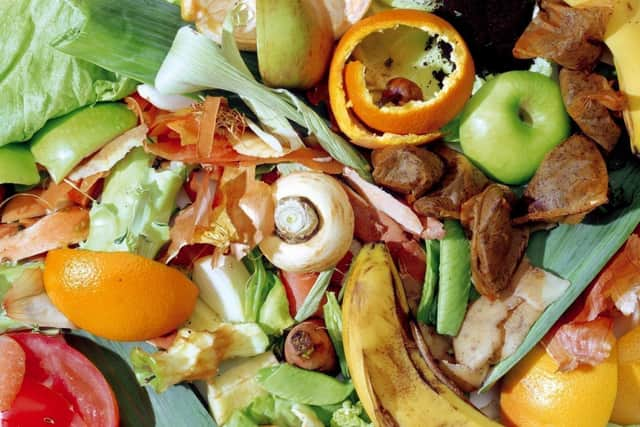Food waste collection trial launched in Heysham
and live on Freeview channel 276
UK households currently throw away around 7.2 million tonnes of food every year. As part of the government’s strategy to tackle climate change and greenhouse gas emissions, it is anticipated that it won’t be too long before councils are being asked to provide a weekly food waste collection service.
To help prepare for potential changes, Lancaster City Council is working in partnership with Lancashire County Council the waste management authority, to trial a weekly food collection service within a designated area of the district.
Advertisement
Hide AdAdvertisement
Hide AdThe aim of the trial which started this week is to test the impact of additional food waste collections on the council’s current waste and recycling services and for the county council to test its sorting and composting process.


The original trial which was scheduled to start in March last year was put on hold as a result of the Covid-19 pandemic.
More than 1000 households in the Windermere Park/Saxon Heights, Tomlinson Road and Bradford Grove area of Heysham have received a kitchen caddy, a kerbside caddy, supply of compostable bin liners and step by step instructions to help residents play an effective part in the trial.
All food waste can be recycled, including leftovers, peelings, dairy products, fruit and vegetables, pasta, bread, cakes, meat, fish and bones and tea and coffee grounds.
Advertisement
Hide AdAdvertisement
Hide AdThose taking part in the trial have been asked to put their caddies out on their normal collection day (every Monday) alongside their other bins and boxes.
Councillor David Brookes, Cabinet member for waste and recycling, said: “By weight, food makes up almost a quarter of an average household's grey bin, so finding a better way of dealing with it can make a big difference.
“Composting food waste will substantially reduce the amount of greenhouse gas emissions compared to sending it to landfill, where it breaks down without oxygen and releases methane - a greenhouse gas that has a much stronger effect on global heating than carbon dioxide.
“Carrying out this trial will put us in a good position if, as expected, weekly food waste collection becomes the required national standard in the next few years. It is also a step in the right direction as part of the council's efforts to tackle the climate emergency."